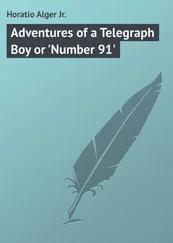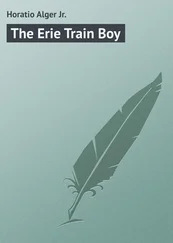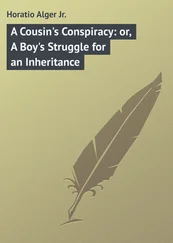Horatio Alger - The Backwoods Boy
Здесь есть возможность читать онлайн «Horatio Alger - The Backwoods Boy» — ознакомительный отрывок электронной книги совершенно бесплатно, а после прочтения отрывка купить полную версию. В некоторых случаях можно слушать аудио, скачать через торрент в формате fb2 и присутствует краткое содержание. ISBN: , Жанр: foreign_prose, foreign_language, на английском языке. Описание произведения, (предисловие) а так же отзывы посетителей доступны на портале библиотеки ЛибКат.
- Название:The Backwoods Boy
- Автор:
- Жанр:
- Год:неизвестен
- ISBN:http://www.gutenberg.org/ebooks/52073
- Рейтинг книги:3 / 5. Голосов: 1
-
Избранное:Добавить в избранное
- Отзывы:
-
Ваша оценка:
- 60
- 1
- 2
- 3
- 4
- 5
The Backwoods Boy: краткое содержание, описание и аннотация
Предлагаем к чтению аннотацию, описание, краткое содержание или предисловие (зависит от того, что написал сам автор книги «The Backwoods Boy»). Если вы не нашли необходимую информацию о книге — напишите в комментариях, мы постараемся отыскать её.
The Backwoods Boy — читать онлайн ознакомительный отрывок
Ниже представлен текст книги, разбитый по страницам. Система сохранения места последней прочитанной страницы, позволяет с удобством читать онлайн бесплатно книгу «The Backwoods Boy», без необходимости каждый раз заново искать на чём Вы остановились. Поставьте закладку, и сможете в любой момент перейти на страницу, на которой закончили чтение.
Интервал:
Закладка:
“By the way, Mr. Speaker,” said Mr. Lincoln, “do you know I am a military hero? Yes, sir, in the days of the Black Hawk war, I fought, bled, and came away. Speaking of General Cass’ career reminds me of my own. I was not at Sillman’s Defeat, but I was about as near it as Cass to Hull’s surrender; and, like him, I saw the place soon afterward. It is quite certain I did not break my sword, for I had none to break; but I bent my musket pretty badly on one occasion. If General Cass went in advance of me in picking whortleberries, I guess I surpassed him in charges upon the wild onions. If he saw any live, fighting Indian, it was more than I did; but I had a good many bloody struggles with the mosquitoes, and although I never fainted from loss of blood, I can truly say I was often very hungry.”
When Mr. Lincoln himself became a candidate for the Presidency, an attempt was made to make capital for him out of this military episode, but fortunately he possessed more substantial claims than this.
Though there was little fighting to be done, there was an occasion that tested the young Captain’s courage and resolution. As the incident is characteristic of Lincoln, and shows his love of justice and humanity, I will transcribe, as better than any paraphrase of my own, the account given by Mr. Lamon in his Life of Lincoln:
“One day, during these many marches and counter-marches, an old Indian found his way into the camp, weary, hungry, and helpless. He professed to be a friend of the whites; and, although it was an exceedingly perilous experiment for one of his color, he ventured to throw himself upon the mercy of the soldiers. But the men first murmured, and then broke out into fierce cries for his blood.
“ ‘We have come out to fight the Indians,’ said they, ‘and by G – we intend to do it!’
“The poor Indian, now in the extremity of his distress and trouble, did what he ought to have done before: he threw down before his assailants a soiled and crumpled paper which he implored them to read before his life was taken. It was a letter of character and safe conduct from Gen. Cass, pronouncing him a faithful man, who had done good service in the cause for which this army was enlisted. But it was too late; the men refused to read it, or thought it a forgery, and were rushing with fury upon the defenceless old savage, when Capt. Lincoln bounded between them and their appointed victim.
“ ‘Men,’ said he, and his voice for a moment stilled the agitation around him, ‘ this must not be done; he must not be shot and killed by us .”
“ ‘But,’ said some of them, ‘the Indian is a spy.’
“Lincoln knew that his own life was now in only less danger than that of the poor creature that cowered behind him. During the whole of this scene Capt. Lincoln seemed to rise to an unusual height of stature. The towering form, the passion and resolution in his face, the physical power and terrible will exhibited in every motion of his body, every gesture of his arm, produced an effect upon the furious mob as unexpected perhaps to him as to any one else. They paused, listened, fell back, and then sullenly obeyed what seemed to be the voice of reason as well as authority. But there were still some murmurs of disappointed rage and half-suppressed exclamations, which looked toward vengeance of some kind. At length one of the men, a little bolder than the rest, but evidently feeling that he spoke for the whole, cried out:
“ ‘This is cowardly on your part, Lincoln!’
“Whereupon the tall Captain’s figure stretched a few inches higher again. He looked down upon these varlets who would have murdered a defenceless old Indian and now quailed before his single hand, with lofty contempt. The oldest of his acquaintances, even Bill Green, who saw him grapple Jack Armstrong and defy the bullies at his back, never saw him so much aroused before.
“ ‘If any man thinks I am a coward, let him test it,’ said he.
“ ‘Lincoln,’ responded a new voice, ‘you are stronger and heavier than we are.’
“ ‘This you can guard against; choose your weapons,’ returned the rigid Captain.
“Whatever may be said of Mr. Lincoln’s choice of means for the preservation of military discipline, it was certainly very effectual in this case. There was no more disaffection in his camp, and the word ‘coward’ was never coupled with his name again. Mr. Lincoln understood his men better than those who would be disposed to criticise his conduct. He has often declared himself that his life and character were both at stake, and would probably have been lost had he not at that supremely critical moment forgotten the officer and asserted the man. To have ordered the offenders under arrest would have created a powerful mutiny; to have tried and punished them would have been impossible. They could scarcely be called soldiers; they were merely armed citizens, with a nominal military organization. They were but recently enlisted, and their term of service was about to expire. Had he preferred charges against them, and offered to submit their differences to a court of any sort, it would have been regarded as an act of personal pusillanimity, and his efficiency would have been gone forever.”
Then, as afterward, Lincoln proved to be the man for the emergency. This humble captain of volunteers was selected by Providence to guide and direct his countrymen in the greatest and most bloody civil contest that was ever waged, and at all times of doubt, danger, and perplexity he manifested the same calm courage, the same firm resolution, and the same humanity, which made him at the age of twenty-three the intrepid champion of a friendless old Indian.
CHAPTER IX
IN THE LEGISLATURE
My young readers will have noticed how extremely slender thus far had been the educational advantages of young Lincoln. Of the thousands of men who have risen to eminence in this country from similar poverty, few have had so little to help them. In England the path of promotion is more difficult, and I doubt whether any one circumstanced as Abraham Lincoln was could ever have reached a commanding position. It will be interesting in this connection to read the statement made by John Bright at his recent installation as Lord Rector of Glasgow University. It will show what a difference there is between limited advantages in England and in America:
“I am an entire stranger to University life in the University sense,” says Mr. Bright. “I may be said to be a man who never had the advantages of education. I had the teaching of some French – as Englishmen teach French, and I had the advantages of a year’s instruction in Latin by a most admirable tutor – a countryman of yours from the University of Edinburgh. But there was not much Greek – not so much that any trace of it is left. There was nothing in the shape of mathematics or science. Looking at education as you take it, I am a person who had the misfortune to have had almost none of it in my youth. You will not, therefore, be surprised if I feel a certain humiliation in seeming to teach you anything, and if I feel a strong sense of envy – but not a blamable envy – that I never possessed the advantages which are placed within your reach. But if I had no education such as colleges and universities give, if my school-life ended at the precise time when your university career begins; if I am unknown to literature and to science and to arts, I ask myself what is it that has brought me within the range of your sympathies – brought me to this distinguished position? I suppose it must be because you have some sympathy with my labors. You believe that I have been in some sort a political teacher; that I have taken some pains and perhaps have been of some service in the legislation and government of our country.”
Читать дальшеИнтервал:
Закладка:
Похожие книги на «The Backwoods Boy»
Представляем Вашему вниманию похожие книги на «The Backwoods Boy» списком для выбора. Мы отобрали схожую по названию и смыслу литературу в надежде предоставить читателям больше вариантов отыскать новые, интересные, ещё непрочитанные произведения.
Обсуждение, отзывы о книге «The Backwoods Boy» и просто собственные мнения читателей. Оставьте ваши комментарии, напишите, что Вы думаете о произведении, его смысле или главных героях. Укажите что конкретно понравилось, а что нет, и почему Вы так считаете.












